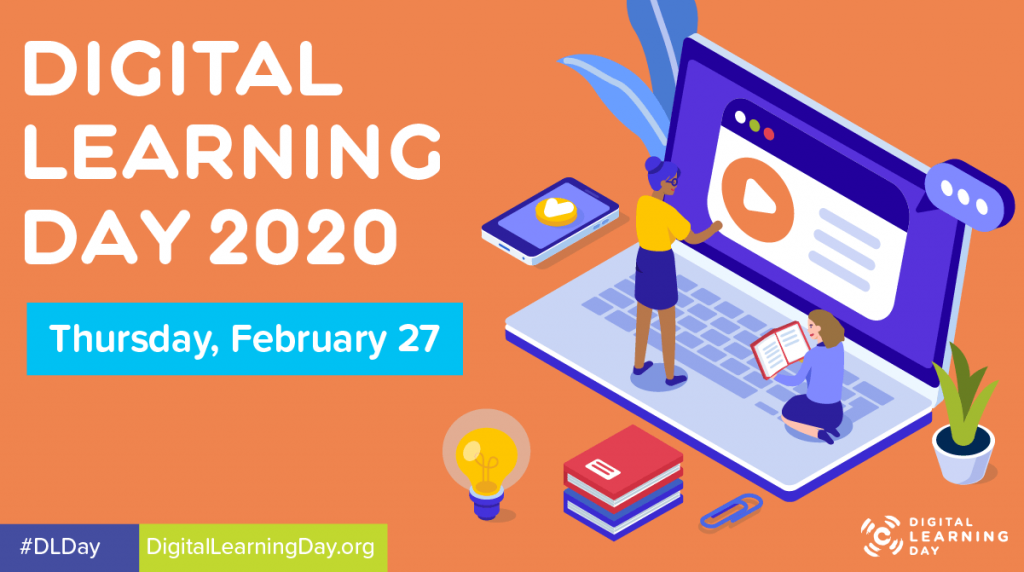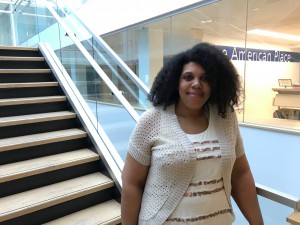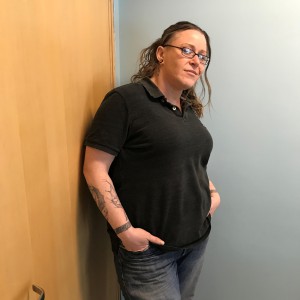“With the support of the Library, it is like coming out of the dark.” — Calvin Hood
Digital Learning Day, recognized nationwide on February 27, is a reminder that the “digital divide” is not just an alliterative phrase but a reality that exists in many of our Hartford neighborhoods.
In our city, only about 57 percent of households have internet access – there are 20,000 homes with no access at all. The impact is serious. As everything from job applications to government information and services migrate online, digital inclusion is becoming synonymous with economic inclusion.
“There’s still just way too many families that don’t have regular access,” said Bridget Quinn-Carey, Hartford Public Library’s chief executive officer. “There are information have and have nots.”
Through Hartford Public Library’s (HPL’s) Crossroads to Connectivity (C2C ) initiative, the Library is taking a two pronged approach to deal bridge the digital divide. “Our digital literacy goal is to help people be successful and to connect them to the resources they need,” Quinn-Carey said.
Step one is the thoughtful distribution of laptops and Wi-Fi hotspots to qualified individuals who are working towards educational and career goals. Many of the successful candidates are negotiating re-entry to society after serving time in prison. Still others have a financial need and additional training would help them improve their circumstances. About 25 people are currently active the Library’s Crossroads to Connectivity initiative and there is the hope that over 100 people will benefit from the program.
“We are looking for people who want to go in a positive direction in life,” said Julie Redding, HPL’s Crossroads to Connectivity coordinator.
The second step, which is still in the planning phases, is the utilization of white space technology – the unused channels between television broadcasts – to provide broadband access to an underserved part of Hartford’s North End.
“This enables us to help people who are working two or three jobs and taking classes and they have other commitments where they can’t be in a physical location. They need the flexibility to work when they have the opportunity. We want to empower them,” Quinn-Carey said.
Up and running for close to a year, Crossroads to Connectivity results are beginning to show. For a small group of focused and dedicated individuals, that laptop, that wi-fi hot spot, coupled with classes and programs, have become the keys to opportunity and a wider world.
**
Tanisha Henriques describes herself as a connoisseur of learning, starting as a child going to Hartford Public Library’s neighborhood libraries.
“I eat up learning like some people eat up exotic foods,” she said.
So when the time came to find a new career, the library was her first stop. Henriques took a couple of digital literacy training courses at the library, as well as online accounting and child development classes.
With her borrowed laptop and wi-fi hotspot, Henriques is preparing for a long term position that suits her thirst for new ideas and her penchant for detail oriented work – bookkeeping.
“With the C2C program it has been really helpful because I am learning QuickBooks,” Henriques said. “This has been really beneficial because with the C2C program I get to practice at home at a lot.”
A laptop would be out of reach for Henriques financially, so access to the Library’s equipment and programs have given her a much-needed start.
Henriques is now attending Capital Community College and will finish her bookkeeping class at the end of March. As soon as she’s done, she’ll get online and start applying for internships in her chosen field.
**
Just a few months ago, Tiffany Reed was not in a good place. Wrestling with addiction, Reed found herself without a home. She found a safe place in Hartford to get help about five months ago.
“I am definitely rebuilding my life from the ground up,” Reed said.
Part of that process is working with the C2C initiative. With a bit of planning on the part of the Library, Reed now has a laptop loaded up with AutoCAD, a high level design software, and everything else she needs to complete her welding certification, a process that would put her almost immediately in contention for well-paying work.
“I am trying to train myself to see if these are things I can build a life on,” she said. “Trying to build a resume out and trying to do research on a phone is not as easy to do as on a laptop,”
Reed doesn’t just need the technological help. Hartford Public Library has given her a safe and welcoming environment to explore ideas and to meet people who are committed to bettering themselves.
Reed believes that the laptop and online classes are the first steps towards an engineering degree. “All I can do is hope,” Reed said.
**
Hartford resident Calvin Hood cut short his high school education to join the military. He spent time in the Army, serving in Vietnam, and then did a subsequent tenure in the Navy, based in Spain. Upon his return to the States, Hood worked for the Post Office until retirement.
As time went on, it was clear to Hood that he had unfinished business. “I need the knowledge,” Hood said.
Thanks to his work with HPL’s Crossroads to Connectivity initiative, Calvin went from having no computer literacy to working towards his GED online – at the age of 73.
“I came out of the 19th century into the 21st century,” he said.
After taking courses to become more adept with the computer, Calvin now uses it to study for his classes, do homework, and prepare for his all-important GED exams.
“It takes some getting used to. I am still not fluent as I want to be,” he said.
Hood has completed one of the tests for his GED and will finish the remainder by the end of the summer. Once he has his GED, Hood plans to become certified to tutor people applying for American citizenship.
“With the support of the Library, it is like coming out of the dark,” he said.
For more information about Hartford Public Library’s programs and services, visit hplct.org.
— By Steven Scarpa, Manager of Communications and Public Relations


